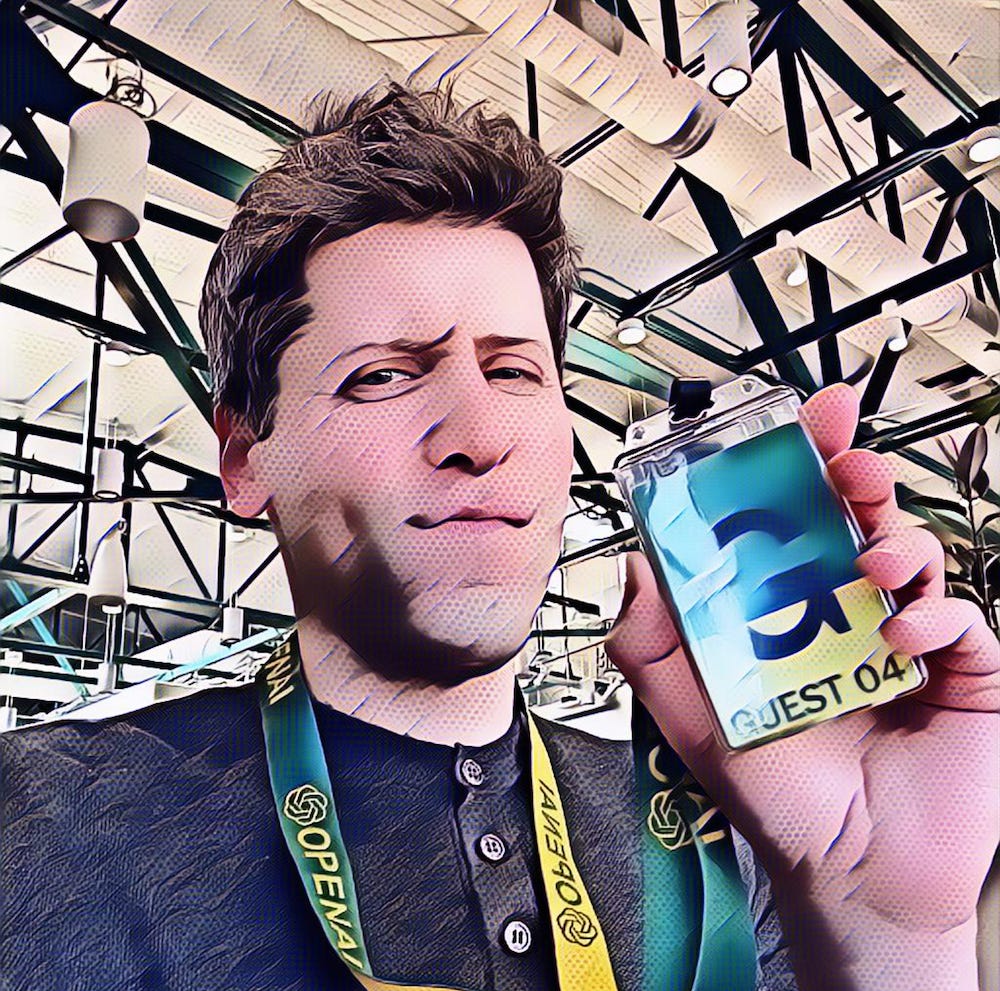AI Roundup 042: sama drama
November 24, 2023.

sama drama
Let's start with the obvious: the messy, messy weekend at OpenAI. If you need a recap of Sam Altman's firing and eventual re-hiring, TechCrunch has a concise timeline of the past week's events.
Some other perspectives:
The saga may have been set in motion when researchers warned the board about a new AI breakthrough, Q*.
Sam Altman's previously unreported firing from Y Combinator.
Why Microsoft hiring OpenAI’s employees might not have been a great move.
Before reinstating Sam, the board apparently tried recruiting two other CEOs and even merging with Anthropic.
And a look at Effective Altruism, a core AI safety philosophy that fueled the blowup.
Elsewhere in the FAANG free-for-all:
Amazon launches AI ready, a program aimed at teach AI skills to millions by 2025.
Bard can now watch YouTube videos for you.
And Meta disbanded its Responsible AI team during the OpenAI chaos.
Stable Vision
Stability AI released Stable Video Diffusion, a new foundation model for generative video.
Why it matters:
Text-to-video is the obvious next step after text-to-image. But for much of this year, the generative video examples have been pretty rough.
That said, if video generation improves at the same rate as image generation, we're going to see astounding results in the near term. For reference, the original Stable Diffusion came out just 15 months ago.
And we're already seeing competition - RunwayML's new Gen-2 model offers impressive text-to-video and image-to-video features.
Elsewhere in foundation models:
Anthropic debuts Claude 2.1, with a context window of 200K tokens, improved accuracy, and new API integrations.
Inflection AI claims its new model, Inflection-2, can outperform Llama 2 and PaLM in certain situations.
And while not technically a foundation model, the new "make real" mode from tldraw has been producing some incredible demos.
Sarah Silverman’s suit setback
This week, a federal judge dismissed most of the claims in Sarah Silverman's lawsuit against Meta's generative models.
Between the lines:
The judge rejected the arguments that Llama was itself a violation of copyright, and that everything it produced was a violation of copyright.
However, there is still the argument that using books as part of an AI training dataset counts as copyright infringement.
This ruling, like the earlier dismissal of claims against Midjourney and Stable Diffusion, is raising the bar for IP lawsuits - it seems that plaintiffs need to show models creating near-identical output to their copyrighted works.
Elsewhere in AI anxiety:
US lawmakers are working on new bills to help deepfake victims.
The FTC has a new process streamlining cases involving AI.
And Wired has a profile of Matthew Butterick, the lawyer behind lawsuits against OpenAI, Meta, Stability AI, and more.
Things happen
Entrepreneur Anthony Levandowski reboots his AI-focused church, Way of the Future. The UK plans to boost AI compute spending by £500M over two years. The AI Security Summit, an invite-only event hosted by Scale AI. Why AI artwork is a potential boon for the public domain. Is Argentina the first AI election? Word of the year: "Hallucinate". Ex interim-CEO Emmett Shear had a cameo in a Harry Potter fanfic. A Spanish AI model (the other kind) earning up to 10K per month. LM Studio - download and run local LLMs. "AI Safety" isn't a real thing.
Last week’s roundup
AI Roundup 041: Lyria
After months of rumors, DeepMind and YouTube released Lyria - a music generation model. The model will power Dream Track, a tool to generate entire songs in the style of specific musicians like Charlie Puth, T-Pain, Demi Lovato, John Legend, and more.





